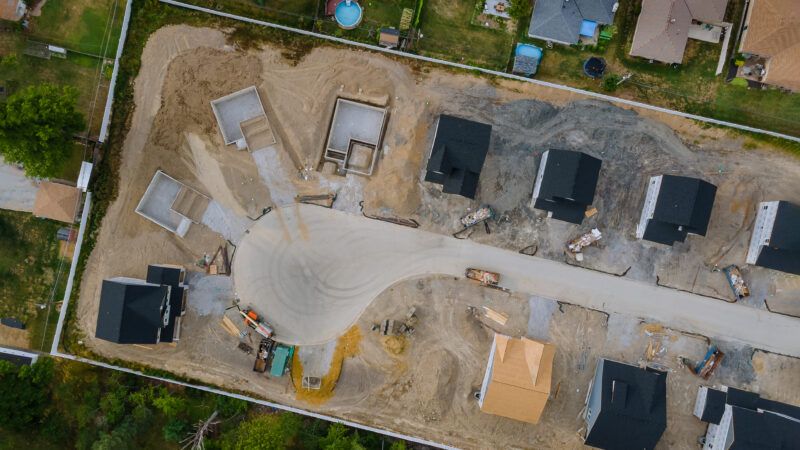California's Land-use Reforms Promote Freedom and Property Rights
Apparently, some conservatives support freedom and property rights, but not when it affects their neighborhoods or intrudes on their personal preferences.

Conservatives promote the importance of property rights, free markets, regulatory reform, small businesses, family values, and the need to reduce the power of unelected bureaucrats. In California, for instance, they want to exempt projects from the dreaded California Environmental Quality Act (CEQA) and streamline the permit process so builders can boost housing supply.
They are completely right on all those points. Yet after a bill came along that promotes those concepts, many Republican legislators and right-leaning activists have opposed it. Apparently, these conservatives support freedom and property rights, but not when it affects their neighborhoods or intrudes on their personal preferences.
I'm referring to Senate Bill 9, which passed the legislature on Thursday. The measure, according to the official bill analysis, requires "cities and counties to ministerially approve a proposed housing development project containing two residential units on parcels zoned for single-family residential development."
In plain English, that means property owners could—by right, rather than at the discretion of planning officials—subdivide their lots and build up to two dwelling units on each lot. It's similar to the state's groundbreaking ADU (accessory dwelling unit) law that gives owners the freedom to create separate apartments on their property, except SB 9 allows them to build units that can be sold individually.
Supporters say the law will lessen the housing crunch by incentivizing construction. That's true, although it's only a small part of a supply-boosting agenda. High prices stem from years of overregulation by local governments that do the bidding of NIMBYs (Not In My Back Yarders)—people who own their homes and don't want additional congestion.
The bill is the work of Democrats, but Republicans who take their own rhetoric seriously should also be championing this approach. SB 9 is the most robust pro-property-rights measure the Legislature has passed in ages. It allows owners to do more things on their land. By the way, property rights involve what you can do with your property. You have no "right" to your neighbor's land or your "way of life."
This is a decidedly market solution. Free markets mean that individual investors decide what to build, not government planning officials. By reducing excessive restrictions, the profit motive will encourage people to build more housing. If you don't like profits, you don't like capitalism—and should reconsider using the conservative label.
The market case for regulatory reform goes like this: Regulations should be minimal and easily understandable. Regulators have a right to assure that any project conforms to general rules, but individuals need not go tail-between-their-legs to bureaucrats or city councils for approval based on subjective characteristics. This bill's "ministerial approval" provision means exactly that.
It promotes small businesses because mom-and-pop investors and builders will undertake these small-scale projects. I have nothing against large corporations, but the "big is bad" crowd has no reason to expect that major developers will specialize in these SB 9-style niche projects. It restricts CEQA, the abusive environmental law that invites lawsuits challenging virtually any project.
What about family values? I live in a community that allows the by-right approval of second homes (provided they conform to setback and size requirements). As a result, some of my neighbors have built second units to house their adult children and aging parents. If that doesn't promote family cohesiveness, I don't know what does.
Opponents of SB 9 (which also, not surprisingly, includes NIMBY Democrats) want other solutions to the housing crisis. They call for subsidized affordable housing projects, but taxpayer-funded housing projects are not reflective of limited-government values. They want to bring back redevelopment agencies—local planning agencies that routinely abused eminent domain and showered subsidies on big developers. No thanks.
They want to protect CEQA, which boggles my mind given the bipartisan consensus about its ill effects. They say local control is paramount. If critics are consistent, they should support removing all state restrictions on local tax-hiking authorities and let city councils raise property taxes at will. Fortunately, I don't think conservatives would go for that idea. I support state restrictions on local tax-raising and limits on local property regulations.
In opposing SB 9, the not-particularly-conservative League of California Cities argued that these measures "fail to recognize the extensive public engagement associated with developing and adopting zoning ordinances." I'll take more land-use freedom over a process that subjects my rights to the arbitrary desires of the loudest voices at a public hearing.
Opponents throw other objections at the wall, including concerns about adequate infrastructure even though new projects pay an abundance of impact fees—as anyone who has been to a planning desk knows. Opponents of SB 9 and SB 10 (which streamlines mid-density projects along transit corridors) aren't adhering to any principle other than, "We don't want new housing here, just build it anywhere else."
That's a philosophy of sorts, but has nothing to do with promoting markets or freedom.
This column was first published in The Orange County Register.
